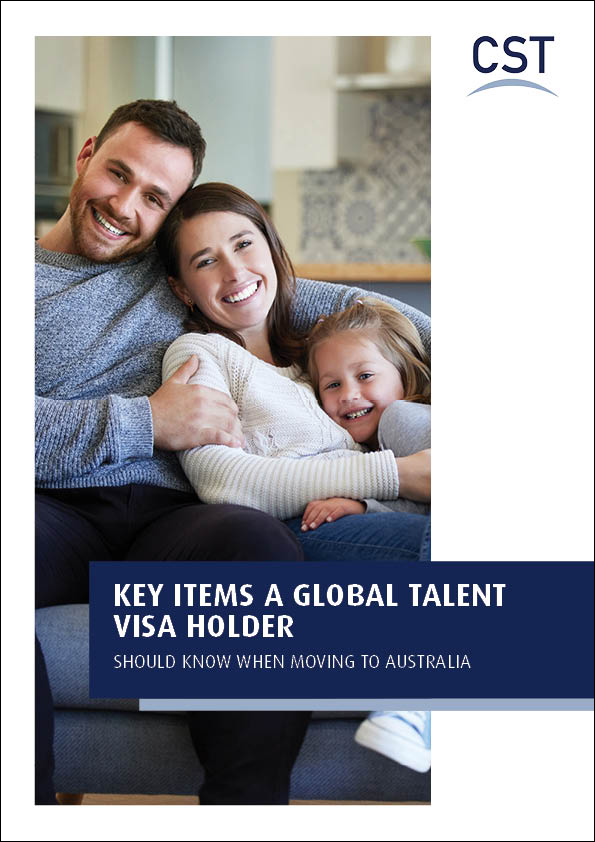Managing taxes can be challenging, particularly when living overseas.
Many Australian expats in the USA wonder, “What happens with taxes on Australian shares I still own back home?”
If you’re an Australian expat in the USA, there are a few things to know about the tax implications of holding Australian shares.
You may already be aware of how the franking credit system in Australia works and how tax credits are tied to dividends.
However, the US doesn’t have an equivalent system.
Here’s how taxes on your shares work when you’re a US tax resident.
What It Means To Be A US Tax Resident
Let’s assume you’ve moved to the USA and are now a US tax resident.
When you lived in Australia, you paid tax on all your worldwide income.
Now, as a US tax resident, you’ll only need to pay Australian taxes on assets with a direct link to Australia.
However, the USA also taxes worldwide income, so income from both Australian and US sources must be reported. US tax rates vary by income type—ordinary income, capital gains, and qualified dividends, each with its own rate.
Owning Australian Shares
If you own shares in Australian companies, here’s how taxes apply to dividend income from those shares.
- Franked Dividends: In Australia, franking credits are added to dividends to reduce double taxation. For expats, these credits usually cover Australian taxes, so you won’t pay additional Australian taxes on franked dividends. However, no tax refund is provided for these credits, even though they offset your Australian tax obligation.
- Unfranked Dividends: Unfranked dividends don’t come with franking credits, so they’re taxed differently. Under the Australia/USA tax agreement, Australia caps the tax on unfranked dividends for US residents at 15%. Be sure to notify the share company that you’re a non-resident so they can apply the correct withholding tax; otherwise, you may need to report it later your tax return.
- Reporting in the USA: The USA considers dividends from Australian shares as taxable income. However, you may be able to claim the franking credit or tax withholding as a foreign tax credit, which reduces your US tax bill.
Inheriting Australian Shares
Australia doesn’t have an inheritance tax. So, when you inherit shares, they’re either valued based on their market price on the date of death or the original cost base paid for the asset. It depends on when the asset was acquired by the deceased. This amount becomes your “cost base,” which you’ll use later to calculate any capital gains tax if you sell the shares.
In the US, while beneficiaries aren’t directly taxed on inherited assets, an estate tax could apply to the estate if it’s large enough. The fair market value on the date of inheritance serves as your cost base for capital gains.
Buying & Selling Australian Shares
Purchasing shares in Australia as a non-resident doesn’t trigger any immediate tax consequences. In usual cases non-residents don’t pay tax on the sale of Australian listed shares.
There is a narrow category of share sales that would be taxable in Australia, however. Generally, these relate to shares in companies that have Australian real estate.
The US imposes a capital gains tax, with different rates for long-term and short-term holdings. You may claim the Australian tax paid as a credit against any US tax due on the same capital gain to avoid double taxation.
Understanding Double Taxation
Australia and the USA have a tax agreement to prevent double taxation.
This means that while you’ll need to report your income in both countries, you can usually apply tax credits for Australian taxes paid against your US taxes on the same income.
Using The Check The Box Election To Simplify Tax Treatment
For Australian expats with ownership stakes in Australian companies or entities, the Check the Box Election can offer significant tax flexibility and may simplify your US tax obligations.
The Check the Box election is a choice US taxpayers can make to treat an Australian business entity (such as a private company) as either a corporation or a pass-through entity for US tax purposes.
If you choose to treat the company as a “disregarded entity” (for a single-member entity) or a partnership (for a multi-member entity), the income flows directly to you as the individual taxpayer.
This may allow you to avoid some of the more complex reporting and potentially double-taxation issues that can arise with foreign corporate ownership.
However, if you opt to treat the Australian company as a corporation, it will be taxed separately, which can sometimes be advantageous but will introduce reporting requirements (such as filing Form 5471).
Please consult with us further so we can better advise you of your position.
Holding Shares Through a Passive Foreign Investment Company (PFIC)
If your shares are held through a Passive Foreign Investment Company (PFIC), special US tax rules apply, which could increase your tax bill.
The IRS defines a PFIC as a foreign corporation earning mostly passive income or holding mostly passive income assets.
US shareholders of a PFIC may face complex tax rules.
To reduce tax, you might consider specific elections like the Qualified Electing Fund (QEF) or mark-to-market options, but these require filing IRS Form 8621.
Controlled Foreign Corporation (CFC) Rules
Under CFC rules, the US may tax you on undistributed income if you own a significant stake in a foreign corporation. If, along with other US taxpayers, you own more than 50% of an Australian company, the company may qualify as a CFC, requiring you to report certain types of income in the US.
Seek Professional Advice
International tax can be complex, and tax rules change often. It’s wise to speak with a CST tax advisor as we provide advice in both US and Australian tax advice.

